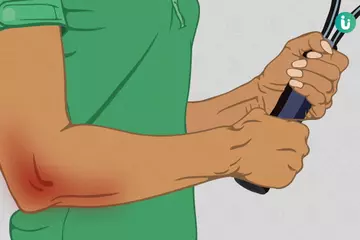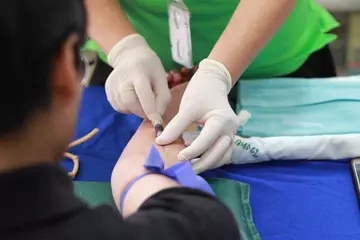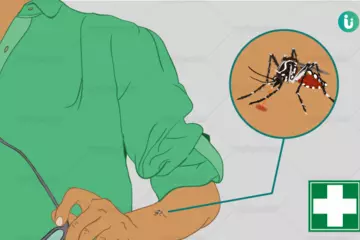What is Von Willebrand disease?
Von Willebrand disease (VWD) is a genetic disorder that results due to genetic mutations in a key clotting protein known as the Von Willebrand factor. This condition was first identified by physician Erik von Willebrand.
What are its main signs and symptoms?
Clinical signs and symptoms may vary according to the age of the patient and can range from mild to moderate or sometimes, extremely severe to fatal. There are 3 major types of the condition including type 1, which is the mildest form and about 3 out of 4 individuals suffer from it. In type 2- the moderate form, the Von Willebrand factor is present but does not function appropriately. Type 3 is the most serious form, wherein the factor is completely absent, however, this type is very rare.
The major signs and symptoms are:
- Bruising easily
- Bleeding gums
- Long lasting bleeding from open cuts and wounds
- Heavy bleeding during periods and after childbirth in women
- Heavy and long-lasting bleeding after tooth extraction or any surgery
- Frequent nosebleeds
- Bleeding into soft tissues or joints causing severe pain and swelling
- Blood in stools, due to bleeding from intestines
- Blood in urine due to bleeding from the kidneys or the bladder
What are the main causes?
Von Willebrand disease is an inherited genetic disorder occurring due to mutations in the gene producing the Von Willebrand factor. This factor is responsible for binding with the clotting factor VIII and platelets in the blood vessels to help the platelets stick together during clot formation. If there is a lack of the Von Willebrand factor, clot formation will be delayed, and it would take longer for bleeding to stop. An individual can inherit type 1 or type 2 Von Willebrand disease if one of the parent’s genes are passed on. If both the parents pass on the recessive genes, then one will inherit the most severe type 3 Von Willebrand disease.
How is it diagnosed and treated?
The pre-emptive diagnosis of Von Willebrand disease is important to avoid further life-threatening complications. Individuals who have type 1 and type 2 Von Willebrand disease do not have any major bleeding complications, unless during surgery or accidents. However, type 3 individuals with Von Willebrand disease have severe bleeding complications and are diagnosed during the early stages of the disease.
Past medical history and other physical tests including complete blood count (CBC) or tests for liver functions are done. The other specific diagnostic tests include measuring the Von Willebrand factor antigens, Von Willebrand factor ristocetin cofactor activity (to check how well the factor works), factor VIII clotting activity, Von Willebrand factor multimers (to diagnose the type of VWD) and platelet function tests.
Treatment is based on the type of VWD and its severity. For treatment, an artificially made hormone called desmopressin is taken as an injection or nasal spray. It stimulates the production of Von Willebrand factor and factor VIII into the bloodstream. It works well for those who have type 1 and type 2 VWD. In cases where one cannot take desmopressin or individuals with non- resolving type 2 VWD or those who have type 3 VWD, replacement therapy is essential. This involves administration of concentrated Von Willebrand factor into the vein of the arm via injectables. Anti-fibrinolytic help to prevent breakdown of clot formation and are used to treat VWD. Fibrin glue is also available, which is directly placed over a wound to prevent excess bleeding.

 OTC Medicines for Von Willebrand's Disease
OTC Medicines for Von Willebrand's Disease















